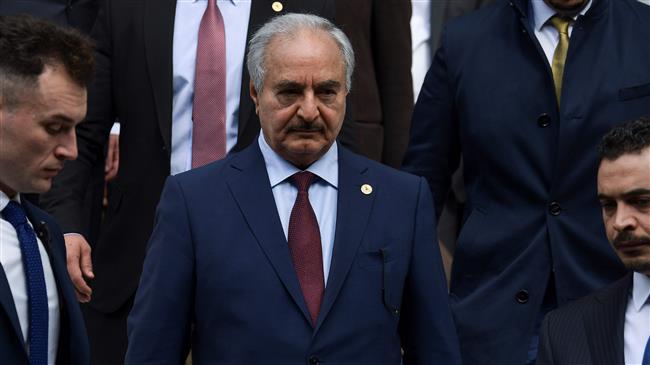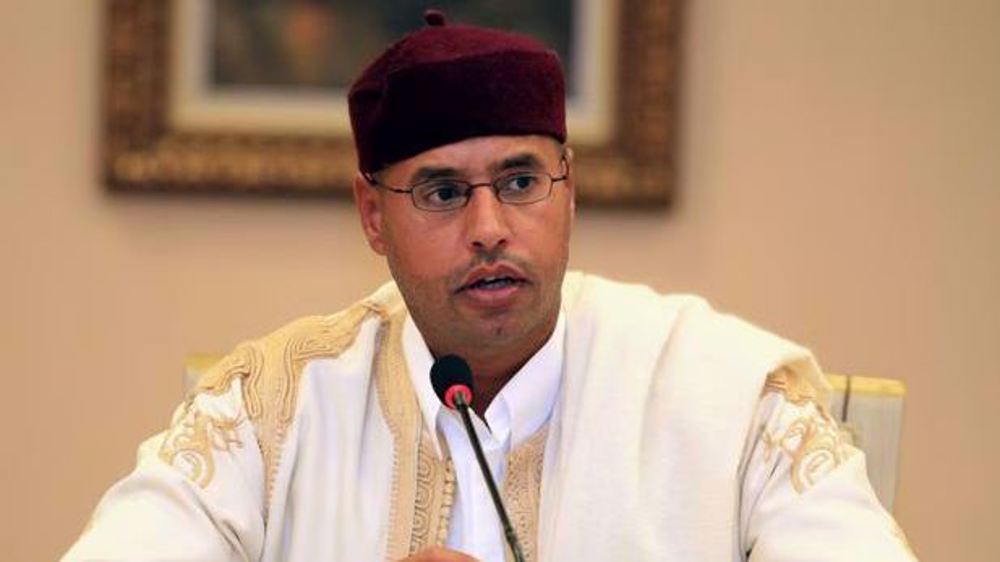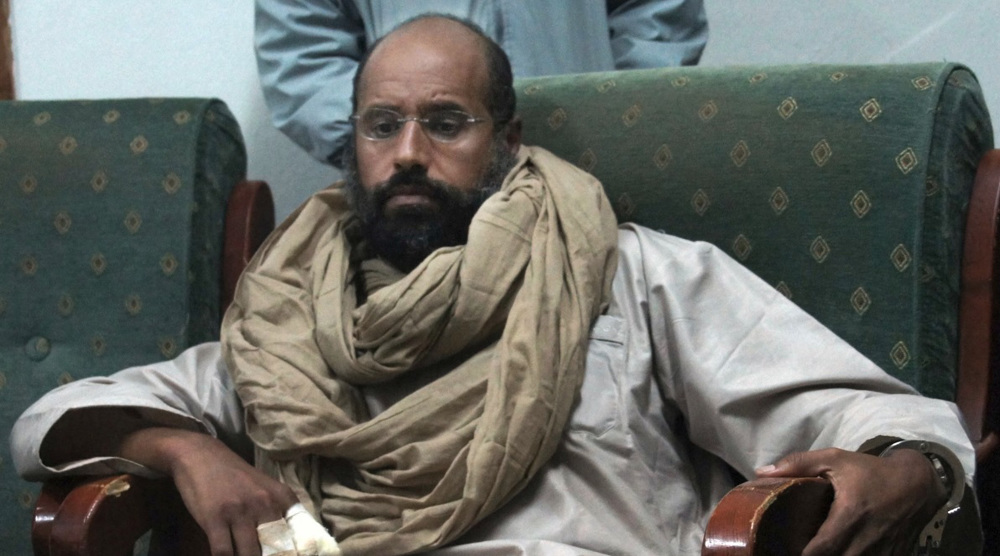Haftar says any ceasefire depends on Turkey’s withdrawal from Libya
Libya’s self-styled commander Khalifa Haftar says he would be ready for a ceasefire, on condition that Turkish forces leave the country and Ankara stops providing the country’s UN-recognized government with weapons.
"A ceasefire (would be) the result of a number of conditions being fulfilled,” Haftar said in an interview with Russian news agency, RIA on Friday.
He called for “the withdrawal of Syrian and Turkish mercenaries, an end to Turkish arms supplies to Tripoli, and the liquidation of terrorist groups” in the capital.
Haftar’s eastern-based Libyan National Army (LNA), backed by Saudi Arabia, Egypt and the UAE, launched an offensive in April to wrest control of Tripoli from the Government of National Accord (GNA), led by Prime Minister Fayez al-Serraj.

The offensive has so far killed 1000 people and displaced some 146,000 people, according to United Nations figures.
Serraj's government has sought Turkey's support to fight against Haftar's forces.
Back in November, he signed a military cooperation deal with Turkish President Recept Tayyip Erdogan, under which Ankara agreed to send troops to support GNA forces.
As part of the offensive, Haftar’s forces attacked a key port in the capital on Tuesday. In response, Seraj said he suspended UN-brokered peace talks.
“There can be no peace under the bombing," the GNA said.
"We are announcing the suspension of our participation in the military talks taking place in Geneva until firm positions are adopted against the aggressor [Gen Haftar]," it said.
Meanwhile, the UN envoy attempting to mediate the two sides in Libya said the two sides resumed talks in Geneva on Thursday.
"The representatives of GNA returned this morning after a short, 24-hour interruption," Ghassan Salame said on Thursday.
He also said that his mission to secure a lasting ceasefire and eventually a political solution was extremely difficult, but "possible.”
A UN spokesman also said on Friday that a new round of talks will begin on Friday.
The oil-rich county has been plunged into chaos since 2011, when a popular uprising and a NATO intervention led to the ouster of long-time dictator, Muammar Gaddafi, and his execution by unruly fighters.
US threatens Iraq with potential sanctions if Maliki returns as PM: Report
Iran and Russia’s quiet economic realignment
Iran Judiciary: EU resolution parrots counter-revolutionary claims
VIDEO | Aerial shots of floods in western France's Maine-et-Loire department
UK police usurped by Zionists
Baghaei to Press TV: Iran enters Geneva talks with ‘open mind and open eyes’
Warships can be sent to the seabed, Leader warns in response to Trump’s threats
VIDEO | Press TV's news headlines











 This makes it easy to access the Press TV website
This makes it easy to access the Press TV website